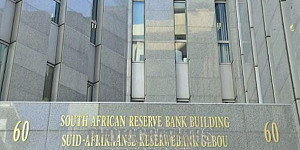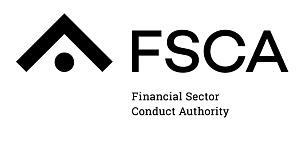Fitch Ratings has downgraded South Africa's Long-Term Foreign-Currency Issuer Default Rating (IDR) to 'BB' from 'BB+'. The Outlook is Negative.
KEY RATING DRIVERS
The downgrade of South Africa's ratings is a result of the lack of a clear path towards government debt stabilisation as well as the expected impact of the COVID-19 shock on public finances and growth. The Negative Outlook reflects the prospect of further significant upside pressure on government debt and additional downside risks associated with the global shock.
The COVID-19 crisis, combined with a recession in 2H19, means South Africa's GDP is forecast to contract by 3.8% in 2020 and Fitch expects only a moderate recovery by 1.7% in 2021. The contraction primarily reflects a 21-day lockdown, during which large parts of the economy, including most mines and manufacturing plants, have ceased operating. The government has stated that the lockdown will not be extended, but many sectors may see continued significant disruption and global demand will remain adversely affected for some time.
The crisis hits public finances in an already weak situation. We expect the consolidated fiscal deficit to surge to 11.5% of GDP in FY20/21, from 6.6% in FY19/20, with a recovery to a still high 8% in FY21/22. This means that general government debt (including about 1.7% of GDP of local government debt will rise from 64.5% of GDP in FY19/20 to 80.2% in FY21/22, well above the 2019 'BB' category median of 46.5%. In its 2020 budget published in February before the full onslaught of the crisis, the government projected gross loan debt (excluding local government debt) rising from 61.6% of GDP in the fiscal year ending March 2020 (FY19/20) to 71.6% of GDP in FY22/23, with the prospect of further rises after that. However, this relied on substantial savings on public sector compensation that are now unlikely to materialise as negotiations to open the three-year public sector wage deal from 2018, which expires in April 2021, have failed to reach a breakthrough. A new wage deal next year is also unlikely to result in the projected savings.
The coronavirus shock adds further pressure on public finances. Fitch expects revenues in 2020 to contract in nominal terms for the first time since 2009 due to the economic contraction. So far fiscal measures announced by the government to alleviate the impact on the economy remain modest, and will mostly be financed from accumulated surpluses of the Unemployment Insurance Fund. However, further significant support measures, as well as additional health spending, are likely to be necessary and we expect the government will only be able to make minor spending cuts in other areas.
Additional risks stem from liabilities of non-financial (15% of GDP) and financial (2.1%) state-owned enterprises (SOEs) and guarantees for independent power producers (4%). The government has already allocated SOE support of a cumulative ZAR129 billion (2.6% of 2020 GDP) over the FY20/21 to FY22/23 planning period, but more may be needed particularly as the COVID-19 shock will weaken already poor finances of many SOEs.
The 'BB' IDRs also reflect the following key rating drivers:
Despite the severe disruption in global financial markets, we do not expect acute problems in fiscal financing, partly reflecting the unusually long-average maturity of government securities (15 years) and the low share of foreign-currency debt in total debt (10%). Foreign-currency debt repayments due are at or below USD1 billion in each of the three years to FY22/23. The government is considering borrowing from international financial institutions to diversify its funding sources.
The South African Reserve Bank (SARB) has reacted to the crisis by cutting its interest rates by 100bp in March, after a 25bp rate cut in January. It has also taken extensive measures to contain stress in money markets, including the purchase of treasury bonds on secondary markets to provide liquidity to banks. Some further monetary easing is likely as SARB expects the impact of lower domestic demand will reduce inflationary pressures. It has also allowed banks to let capital ratios decline below regular thresholds. While the crisis is likely to hit asset quality, Fitch considers the risk that the sovereign will need to provide support to the banking sector as low.
The current-account deficit fell to 3.0% in 2019 but is expected to deteriorate to 4.7% of GDP in 2020 on the back of reduced global demand as well as the impact of the coronavirus-related closures on production capacity, which will not be fully offset by a substantial import compression due to the weaker exchange rate and a reduction in incomes. Net external debt, at an estimated 18.9% of GDP in 2020, is still in line with the 'BB' category median.
The SARB has maintained its commitment to flexible exchange rates, letting the currency absorb the shock as investors withdrew from South Africa as from other emerging markets in March. Relatively muted exchange rate pass-through means that the inflation risks from this strategy are contained. As a result, the risks associated with the relatively modest level of international reserves and the low level of international liquidity is contained.
ESG - Governance: South Africa has an ESG Relevance Score of 5 for both Political Stability and Rights and for the Rule of Law, Institutional and Regulatory Quality and Control of Corruption, as is the case for all sovereigns. Theses scores reflect the high weight that the World Bank Governance Indicators (WBGI) have in our proprietary Sovereign Rating Model. South Africa has a medium WBGI ranking at the 57th percentile, reflecting relatively institution and well-entrenched democratic processes. However, exceptionally high inequality could lead to long-term challenges to social stability and complicates the government's efforts to accelerate economic growth and consolidate public finances in an environment of rising calls for improving public services.







































